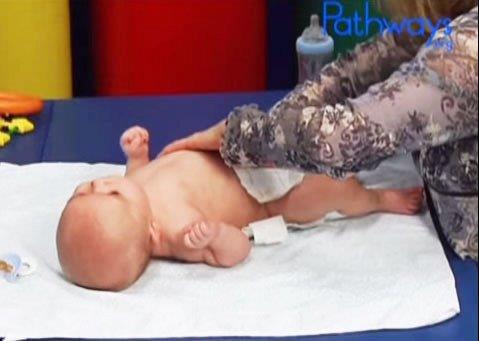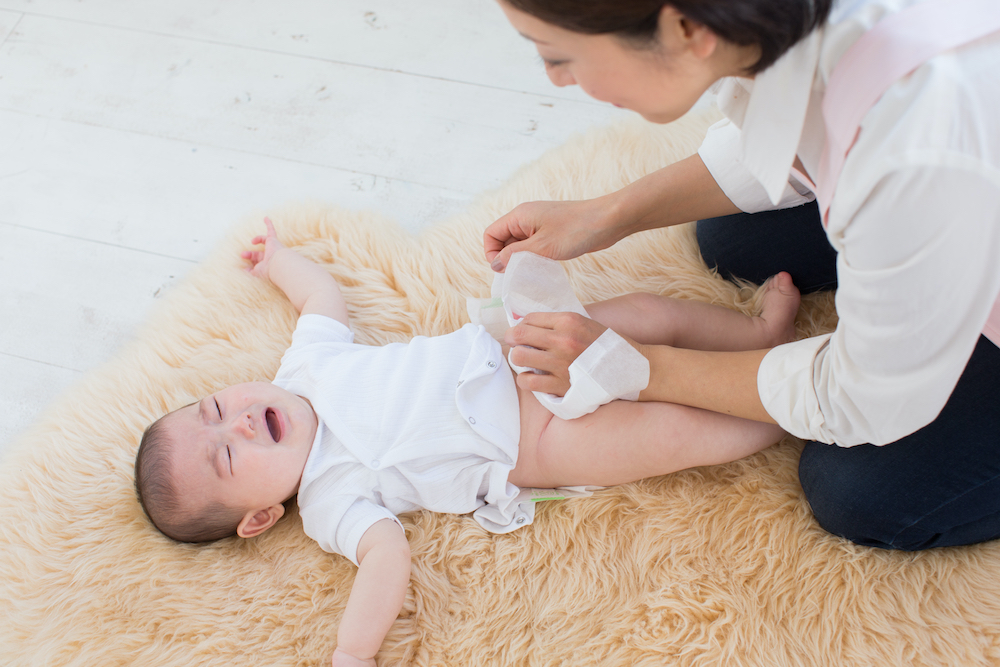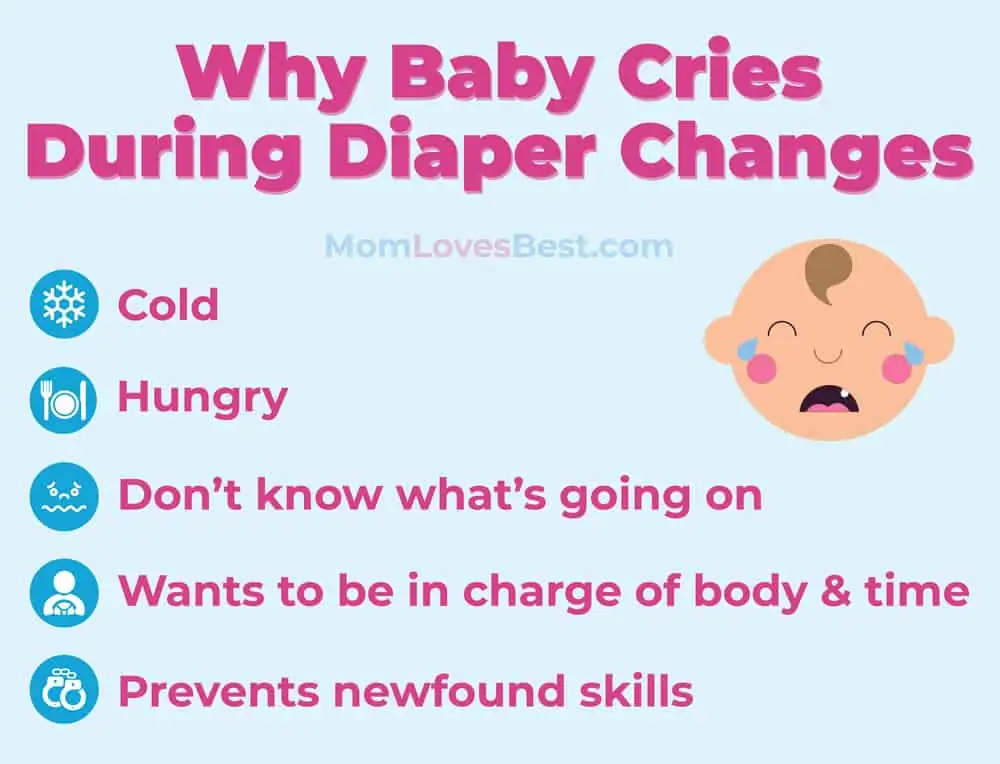Babies may hate diaper changes due to discomfort or feeling restricted. They might also dislike the interruption to their activities.
Diaper changes can be a challenging time for both babies and parents. Babies often feel uncomfortable or restricted during the process, leading to fussiness. This reaction can be due to the cold sensation of wipes, the awkward positioning, or the interruption to their playtime or feeding.
Understanding why a baby dislikes diaper changes can help parents make the experience smoother. Making the environment more comfortable and engaging can reduce resistance. Using warm wipes, singing songs, or providing a toy can distract the baby and make diaper changes more pleasant. A calm approach can turn diaper changing into a more manageable routine.
Common Discomforts
Diaper changes can be a struggle for many parents. Babies often resist these changes due to common discomforts. Understanding these discomforts can help make the process smoother.
Sensitive Skin
Babies have sensitive skin that can easily become irritated. The materials in diapers may cause itching or redness. This discomfort makes diaper changes unpleasant for them. Using diapers with soft, breathable materials can help reduce irritation.
Here are some tips to handle sensitive skin:
- Use fragrance-free wipes.
- Apply a gentle moisturizer.
- Choose hypoallergenic diaper brands.
Diaper Rash
Diaper rash is another common issue. This rash can cause pain and discomfort. It usually occurs due to prolonged exposure to wetness or friction. Babies with diaper rash often cry during changes.
To prevent diaper rash, follow these steps:
- Change diapers frequently.
- Ensure the diaper area is dry before putting on a new one.
- Use diaper rash cream.
| Preventive Measures | Benefits |
|---|---|
| Frequent Diaper Changes | Keeps the area dry |
| Diaper Rash Cream | Protects and soothes skin |
| Breathable Diapers | Reduces irritation |

Credit: www.parentingexperttomom.com
Fear And Anxiety
Fear and Anxiety can be major reasons why a baby hates diaper changes. A diaper change involves unfamiliar sensations and movements. These experiences can be quite overwhelming for a baby. Let’s break down some of the specific reasons related to fear and anxiety.
Unexpected Movements
Babies dislike sudden, unexpected movements. When you lift their legs, they might feel startled. This sense of unpredictability can make them anxious. Babies crave stability and routine. Sudden changes disrupt their sense of security.
| Reasons | Effects |
|---|---|
| Sudden Lifting | Startles the baby |
| Unpredictable Actions | Causes anxiety |
| Lack of Routine | Disrupts security |
Strange Sensations
Diaper changes introduce new, strange sensations. The feeling of a cold wipe can be unpleasant. Babies are not used to these unfamiliar touches. This can make them feel scared.
- Cold Wipes: Shock their skin, making them uncomfortable.
- Changing Positions: Feels awkward and insecure.
- New Textures: Feels foreign and unsettling.
Addressing these fears can make diaper changes easier. Be gentle and consistent. These small changes can make a big difference.
Loss Of Control
Babies often resist diaper changes because they experience a significant loss of control. Diaper changes can make them feel uneasy and powerless. Understanding the reasons behind their discomfort can help ease the process.
Feeling Vulnerable
During diaper changes, babies feel vulnerable and exposed. They are lying down, often with their clothes removed. This position can make them feel unsafe. Babies rely on a sense of security, and diaper changes disrupt this. The sudden exposure to cold air can also add to their discomfort.
Limited Mobility
Babies love to move and explore their surroundings. Diaper changes require them to stay still, which restricts their mobility. This forced stillness can lead to frustration. Babies prefer to have the freedom to move their arms and legs. Here are a few strategies to help:
- Distract them with a toy.
- Sing a song or make funny faces.
- Allow them to hold a special object.
Creating a positive environment can make diaper changes less stressful. Encouraging movement in other ways can also help.

Credit: pathways.org
Disruption Of Activities
Babies love to explore their world. Diaper changes interrupt their fun. Babies may feel frustrated and upset. They do not understand the need for diaper changes. Here are some reasons why diaper changes are disruptive.
Interrupted Play
Playtime is crucial for babies. It helps them learn and grow. They may be building with blocks or playing with toys. Suddenly, a diaper change stops their fun. This interruption can make them upset. Babies want to keep playing. They do not want to stop for a diaper change.
Babies have short attention spans. They get easily distracted. An interruption can break their concentration. After the diaper change, they may not remember their game. This can be frustrating for them.
Interrupted Sleep
Sleep is essential for babies. It helps their bodies grow and develop. A wet or dirty diaper can wake them up. This disruption can make them cranky. They need to feel comfortable to sleep well. Diaper changes during sleep time are not welcome.
Babies need consistent sleep routines. An interruption can throw off their schedule. A diaper change might wake them fully. Getting back to sleep can be hard for them. This can lead to more fussiness and discomfort.
Communication Barriers
Understanding why your baby hates diaper changes can be challenging. One major factor is communication barriers. Babies have limited ways to express their needs and discomforts. Misinterpreting their signals can lead to frustration for both the baby and the parent.
Nonverbal Cues
Babies use nonverbal cues to communicate. These cues can include crying, facial expressions, and body movements. A baby may cry or squirm during a diaper change. This behavior can be due to discomfort, cold wipes, or feeling exposed.
Parents should observe their baby’s reactions closely. Understanding these cues can help make diaper changes smoother. For example, a baby might clench their fists or arch their back. These are signs that the baby is unhappy or uncomfortable.
Misunderstood Signals
Parents often misinterpret their baby’s signals. A baby might cry because they are hungry, tired, or need comfort. This can make it hard to know if the baby hates the diaper change itself or something else.
Here are some common misunderstood signals:
- Crying: Could mean hunger, discomfort, or the need for attention.
- Squirms: Might indicate that the baby is cold or feels insecure.
- Facial Expressions: A frown or grimace can signal discomfort or irritation.
Parents can try to address each potential issue. This involves ensuring the changing area is warm, using gentle wipes, and offering a soothing voice. Understanding these signals can reduce stress during diaper changes.

Credit: babysparks.com
Parental Stress
Parental stress can significantly impact a baby’s reaction to diaper changes. Babies are highly sensitive to their parents’ emotions. If parents are tense or anxious, the baby can sense this. This can make diaper changes more challenging.
Tense Atmosphere
A tense atmosphere can make the baby feel uneasy. Parents may worry about spills or messes. This worry creates a stressful environment. Babies pick up on these cues. They may become fussy or resistant.
Rushed Routine
A rushed diaper change can upset a baby. Parents might hurry due to busy schedules. This rush can cause discomfort for the baby. Babies need time to feel secure during changes. A calm, slow routine can help.
Solutions And Tips
Diaper changes can be a struggle for many parents. Babies often resist these necessary routines. Fortunately, some solutions and tips can make this process smoother. Here, you’ll find effective strategies to calm your baby and make diaper changes less stressful.
Soothing Techniques
Babies respond well to soothing techniques. Try using a gentle voice to calm them. Softly singing a lullaby can also help. Ensure the room is warm to prevent discomfort. Gentle stroking of their tummy or back can be comforting.
You might also try using a pacifier during diaper changes. Many babies find sucking soothing. Another tip is to use a warm, wet cloth instead of cold wipes. This can make the process more pleasant for your baby.
Engaging Distractions
Keeping your baby occupied during diaper changes can be very effective. Use toys or colorful objects to grab their attention. You can also hang a mobile above the changing table.
Playing soft music in the background can also be a good distraction. Additionally, talking to your baby about what you’re doing can engage them. This helps keep their mind off the diaper change.
Interactive toys with lights and sounds can be particularly engaging. These toys can hold your baby’s attention long enough for a quick change. You can also try giving them a favorite stuffed animal to hold.
| Technique | Description |
|---|---|
| Gentle Voice | Speak softly to soothe the baby |
| Lullaby | Sing a soft song to calm them |
| Warm Room | Ensure the room temperature is comfortable |
| Interactive Toys | Use toys with lights and sounds |
| Pacifier | Offer a pacifier during the change |
| Warm Cloth | Use a warm, wet cloth instead of cold wipes |
| Soft Music | Play calming music in the background |
Long-term Strategies
Diaper changes can be a challenge for many parents. Babies often resist this necessary task. Implementing long-term strategies can make diaper changes smoother and more enjoyable for both you and your baby.
Consistent Routine
Babies thrive on consistency. Establishing a consistent routine for diaper changes can help reduce resistance. Use the same place, time, and steps each time you change your baby’s diaper.
Here’s a simple routine to follow:
- Choose a quiet and comfortable spot for diaper changes.
- Have all supplies ready and within reach.
- Use the same words and actions each time.
- Engage your baby with a favorite toy or song.
By following a consistent routine, your baby will know what to expect. This predictability can make the process less stressful.
Positive Reinforcement
Positive reinforcement can encourage your baby to cooperate during diaper changes. Praise and rewards can make a big difference.
Here are some ways to use positive reinforcement:
- Verbal Praise: Say encouraging words like “Good job!” or “You did great!”
- Physical Affection: Give hugs, kisses, or gentle pats.
- Small Rewards: Offer a small toy or a special treat after a successful diaper change.
Using positive reinforcement helps your baby associate diaper changes with positive experiences. Over time, this can reduce their resistance and make diaper changes more pleasant.
| Strategy | Description | Example |
|---|---|---|
| Consistent Routine | Following the same steps each time | Changing diaper in the same room, using the same words |
| Positive Reinforcement | Rewarding good behavior | Praising the baby, giving a small toy |
Frequently Asked Questions
Why Do Babies Cry During Diaper Changes?
Babies cry during diaper changes due to discomfort or cold. They dislike the sudden exposure. Disrupting their activity can also make them fussy.
How Can I Make Diaper Changes Easier?
Keep your baby entertained with toys or a song. Warm up wipes for comfort. Be quick and gentle.
What Are Signs My Baby Hates Diaper Changes?
Signs include crying, squirming, and trying to roll away. They may also stiffen their legs or body.
Can A Routine Help With Diaper Changes?
Yes, a consistent routine can make your baby feel secure. Predictability helps reduce anxiety during diaper changes.
Conclusion
Understanding why your baby dislikes diaper changes can make the process smoother. Recognizing their discomfort and addressing it with patience helps. Use calming techniques, distraction, and quick changes to ease stress. Remember, this phase will pass, and your baby’s comfort is paramount.
Happy diaper changing!




